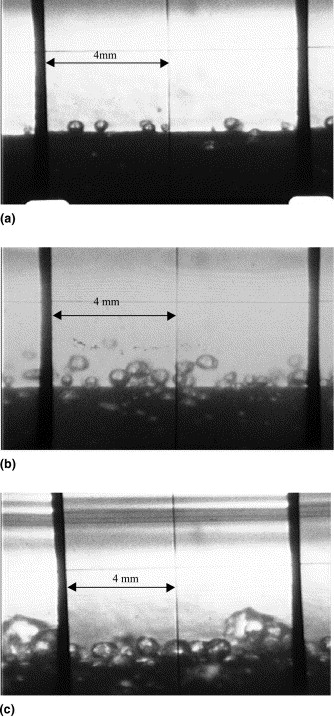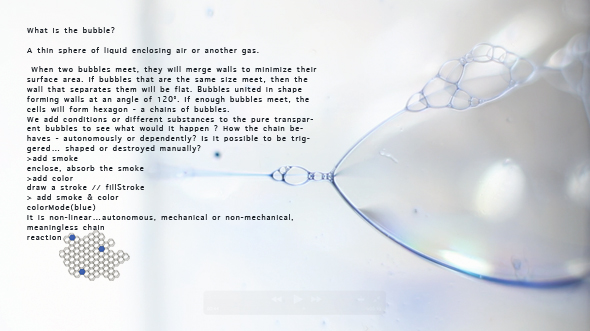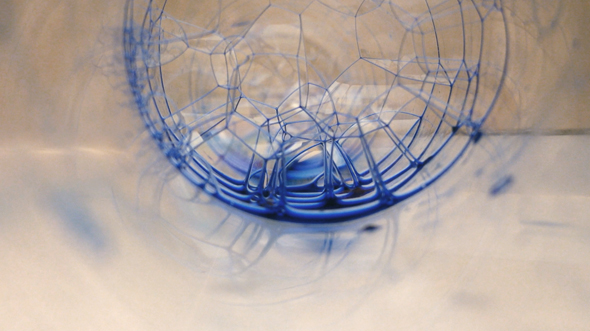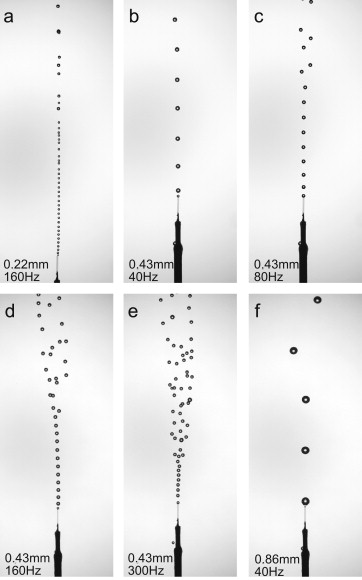HOW TO GET FROM ZERO TO ONE: Difference between revisions
No edit summary |
No edit summary |
||
| Line 12: | Line 12: | ||
We added conditions or different substances to the pure transparent bubbles to see what would it happen? How the chain behaves - autonomously or dependently? Is it possible to be triggered… shaped or destroyed manually? | We added conditions or different substances to the pure transparent bubbles to see what would it happen? How the chain behaves - autonomously or dependently? Is it possible to be triggered… shaped or destroyed manually? | ||
<BR> | <BR> | ||
[[File:Bub.jpeg | File:Bub2.jpeg]] | [[File:Bub.jpeg | left]] | ||
<br> | |||
[[File:Bub2.jpeg]]<br> | |||
>add smoke:<br> | >add smoke:<br> | ||
enclose, absorb the smoke<br> | enclose, absorb the smoke<br> | ||
| Line 24: | Line 25: | ||
[[File:wiki2.jpg]] | [[File:wiki2.jpg]] | ||
<br> | <br> | ||
video_ http://vimeo.com/52297001 | |||
Revision as of 03:20, 30 October 2012
We build a simple bubbles chain_ reaction
together with Nan Wang
What is the bubble?
A thin sphere of liquid enclosing air or another gas.
When two bubbles meet, they will merge walls to minimize their surface area. If bubbles that are the same size meet, then the wall that separates them will be flat. Bubbles united in shape forming walls at an angle of 120°. If enough bubbles meet, the cells will form hexagon - a chains of bubbles.
We added conditions or different substances to the pure transparent bubbles to see what would it happen? How the chain behaves - autonomously or dependently? Is it possible to be triggered… shaped or destroyed manually?

>add smoke:
enclose, absorb the smoke
>add color:
draw a stroke // fillStroke
> smoke + color


video_ http://vimeo.com/52297001

